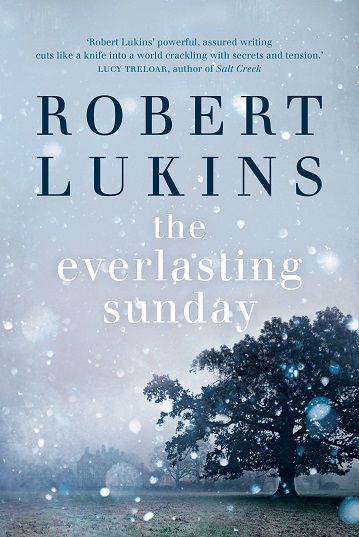
‘The Everlasting Sunday’ is your debut novel, released by UQP in March 2018. You’ve stated you have a “rotting pile of 15 manuscripts” under your bed from 20 years of writing. How important were those manuscripts in your development as a novelist?
They were everything. I was stubbornly attached to an idea that I wanted to learn to write in isolation. Every one of those manuscripts was consciously a writing exercise in which I was trying out different voices, styles and approaches. Sometimes aping the authors I admired; sometimes following an obviously silly idea to its conclusion (there is one particularly bad example with no characters set in a completely empty room). They weren’t attempts to create a publishable novel but simply attempts to discover who I was as a writer.
Set in the coldest winter on record in England in 1962, the novel takes place in Goodwin Manor, a home for boys who have been ‘found by trouble’. The creepy, isolated Goodwin Manor is a strong character in the book, but so is the weather. How did you go about giving the weather such a strong voice?
It was important for me that the weather and its atmosphere be an integrated part of the story rather than just a layer applied over the top. The winter – The Big Freeze – entirely frames and shapes the experiences of the characters. It leaches into their attitudes and relationships. I’ve given winter a literal voice and agency in this novel; it sees what these humans are up to and intervenes.
Goodwin Manor is full of young males who have avoided gaol and are negotiating the secrets and politics of the manor. Though sometimes brutal they are also very vulnerable. How important was it for you to explore the boys’ softer sides?
It was very important in that I wanted to present whole characters, and that this is my experience of life. This vulnerability and hurt is at the centre of my story’s relationships and it is the source of any brutality and violence. These are young people attempting to tether themselves to a world that has presented them with very difficult circumstances.
You spent some time in England in your early twenties and Goodwin Manor is based on a creepy dilapidated manor at the edge of the English Village in which you were the postman. How important was memory in recreating this era and this bitter winter?
It was entirely the origin for this novel. When I lived in that Shropshire village my working day ended at sunrise with me delivering scraps of junk mail to the great but long-abandoned mansion three miles out of town up through the empty grazing fields. Standing in the shadow of that house was such a peaceful yet lonely and menacing moment. The whole novel is some attempt to reconstruct that very specific time and atmosphere.
‘The Everlasting Sunday’ as been compared to Kazuo Ishiguro’s ‘Remains of the Day’ and J.D. Salinger’s ‘The Catcher in The Rye’. Are such comparison’s encouraging or overwhelming?
They’re the kind of comparisons people are welcome to send my way any day of the week! I’m trying not to be too influenced by comparisons or reviews but it is certainly encouraging to be mentioned alongside writers of such subtlety and insight.
This is your debut novel. How did you go about finding an agent and a publisher?
A combination of ignorance and dumb luck. I was focused (some would say lazy) with my submissions. I knew I wanted Curtis Brown as my agency and UQP as my publisher. With no introductions or fiction publishing track record I blindly sent the novel to both and the manuscript was (I gather) passed around within both organisations. Then in the same week, a little over two years later, Grace Heifetz offered to represent the novel and UQP made an offer of publication. As I said, dumb luck.
How has your membership of Writers Victoria helped you develop as a writer?
Since emerging from my childish bubble of writing isolation it has been a wonderful and inspiring experience to get to know other writers and how they work. Writers Victoria has been a big part of that; giving me insights and opportunities to learn from others and their experiences. I genuinely feel that I am becoming a better writer, more prone to challenging myself, because of this.
What advice do you have for other emerging writers working on novels?
Just that being utterly lost and confused is a vital stage of writing; it means you run the risk of doing something interesting to find your way out of the dark.
|
Robert Lukins lives in Melbourne and has worked as an art researcher and journalist. His writing has been published widely, including in ‘The Big Issue’, ‘Rolling Stone’, ‘Crikey’, ‘Broadsheet’ and ‘Overland’. ‘The Everlasting Sunday’ is his first novel. ‘The Everlasting Sunday’ is published by UQP / Penguin Random House |
 |
